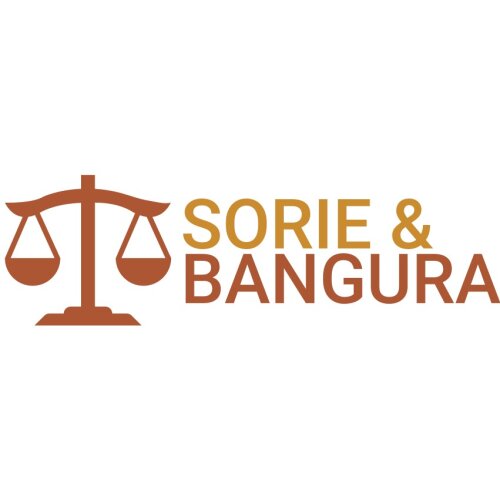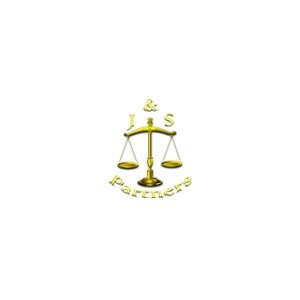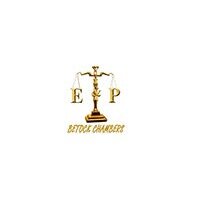Best Adoption Lawyers in Sierra Leone
Share your needs with us, get contacted by law firms.
Free. Takes 2 min.
Free Guide to Hiring a Family Lawyer
Or refine your search by selecting a city:
List of the best lawyers in Sierra Leone
About Adoption Law in Sierra Leone
Adoption in Sierra Leone is governed by the Adoption Act of 1989. This act sets out the legal framework for adoption, including who is eligible to adopt, the process for adoption, and the rights and responsibilities of adoptive parents.
Why You May Need a Lawyer
It is important to seek legal advice when considering adoption in Sierra Leone to ensure that the process is carried out in compliance with the law. A lawyer can help navigate the complex legal procedures, protect the rights of all parties involved, and ensure that the best interests of the child are upheld.
Local Laws Overview
Some key aspects of adoption laws in Sierra Leone include:
- Only individuals who are at least 25 years old and are deemed fit to take care of a child are eligible to adopt.
- Adoption is a formal legal process that requires the approval of the court.
- The consent of the child's biological parents or guardians is usually required for adoption to proceed.
Frequently Asked Questions
Q: Who is eligible to adopt in Sierra Leone?
A: Individuals who are at least 25 years old and are deemed fit to take care of a child are eligible to adopt.
Q: What is the process for adoption in Sierra Leone?
A: The adoption process in Sierra Leone involves submitting an application to the court, obtaining the consent of the child's biological parents or guardians, and attending a court hearing to finalize the adoption.
Q: What rights do adoptive parents have in Sierra Leone?
A: Adoptive parents in Sierra Leone have the same rights and responsibilities as biological parents, including the right to make decisions regarding the child's upbringing and well-being.
Q: Can adoption be reversed in Sierra Leone?
A: In certain circumstances, adoption can be reversed in Sierra Leone, such as if it is found that the adoption was obtained through fraud or coercion.
Q: What is the role of the court in the adoption process?
A: The court plays a crucial role in the adoption process in Sierra Leone by reviewing adoption applications, conducting hearings, and issuing final adoption orders.
Q: Are there any restrictions on who can be adopted in Sierra Leone?
A: There are no specific restrictions on who can be adopted in Sierra Leone, but the best interests of the child are always considered when approving adoptions.
Q: How long does the adoption process take in Sierra Leone?
A: The duration of the adoption process in Sierra Leone can vary depending on the circumstances of each case, but it typically takes several months to complete.
Q: Can same-sex couples adopt in Sierra Leone?
A: Same-sex couples are not legally allowed to adopt in Sierra Leone.
Q: What are the responsibilities of adoptive parents in Sierra Leone?
A: Adoptive parents in Sierra Leone are responsible for the care, upbringing, and welfare of the adopted child, just like biological parents.
Q: Is it possible to adopt a child from another country in Sierra Leone?
A: Yes, it is possible to adopt a child from another country in Sierra Leone, but the adoption must comply with the laws of both countries involved.
Additional Resources
For more information on adoption in Sierra Leone, you can contact the Ministry of Social Welfare, Gender, and Children's Affairs or seek assistance from local adoption agencies.
Next Steps
If you are considering adoption in Sierra Leone and need legal assistance, it is advisable to consult with a qualified lawyer who specializes in family law and adoption cases. A lawyer can guide you through the process, ensure that your rights are protected, and help facilitate a successful adoption.
Lawzana helps you find the best lawyers and law firms in Sierra Leone through a curated and pre-screened list of qualified legal professionals. Our platform offers rankings and detailed profiles of attorneys and law firms, allowing you to compare based on practice areas, including Adoption, experience, and client feedback.
Each profile includes a description of the firm's areas of practice, client reviews, team members and partners, year of establishment, spoken languages, office locations, contact information, social media presence, and any published articles or resources. Most firms on our platform speak English and are experienced in both local and international legal matters.
Get a quote from top-rated law firms in Sierra Leone — quickly, securely, and without unnecessary hassle.
Disclaimer:
The information provided on this page is for general informational purposes only and does not constitute legal advice. While we strive to ensure the accuracy and relevance of the content, legal information may change over time, and interpretations of the law can vary. You should always consult with a qualified legal professional for advice specific to your situation.
We disclaim all liability for actions taken or not taken based on the content of this page. If you believe any information is incorrect or outdated, please contact us, and we will review and update it where appropriate.
Browse adoption law firms by city in Sierra Leone
Refine your search by selecting a city.











